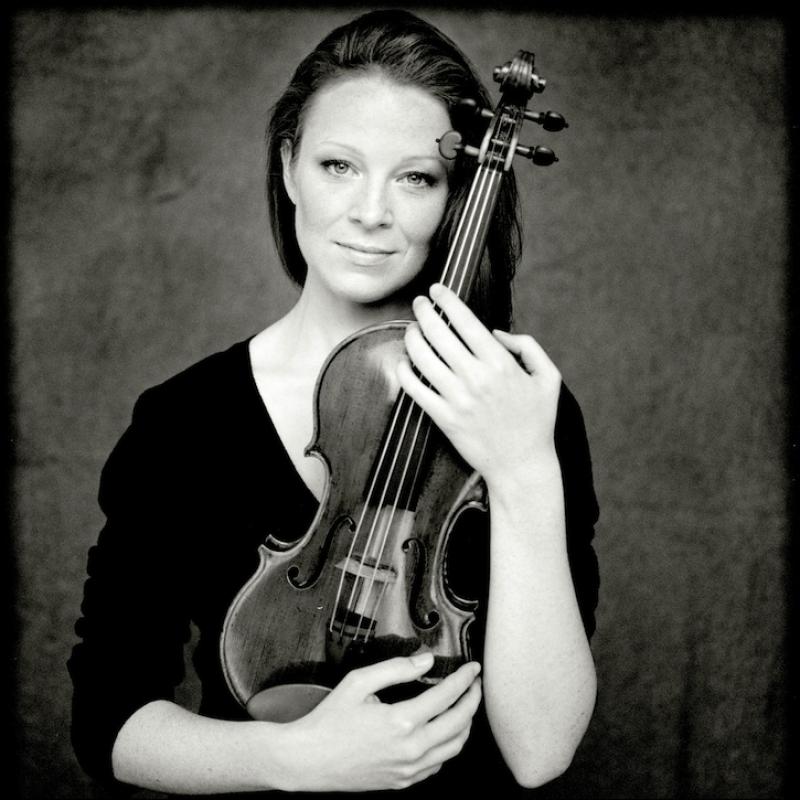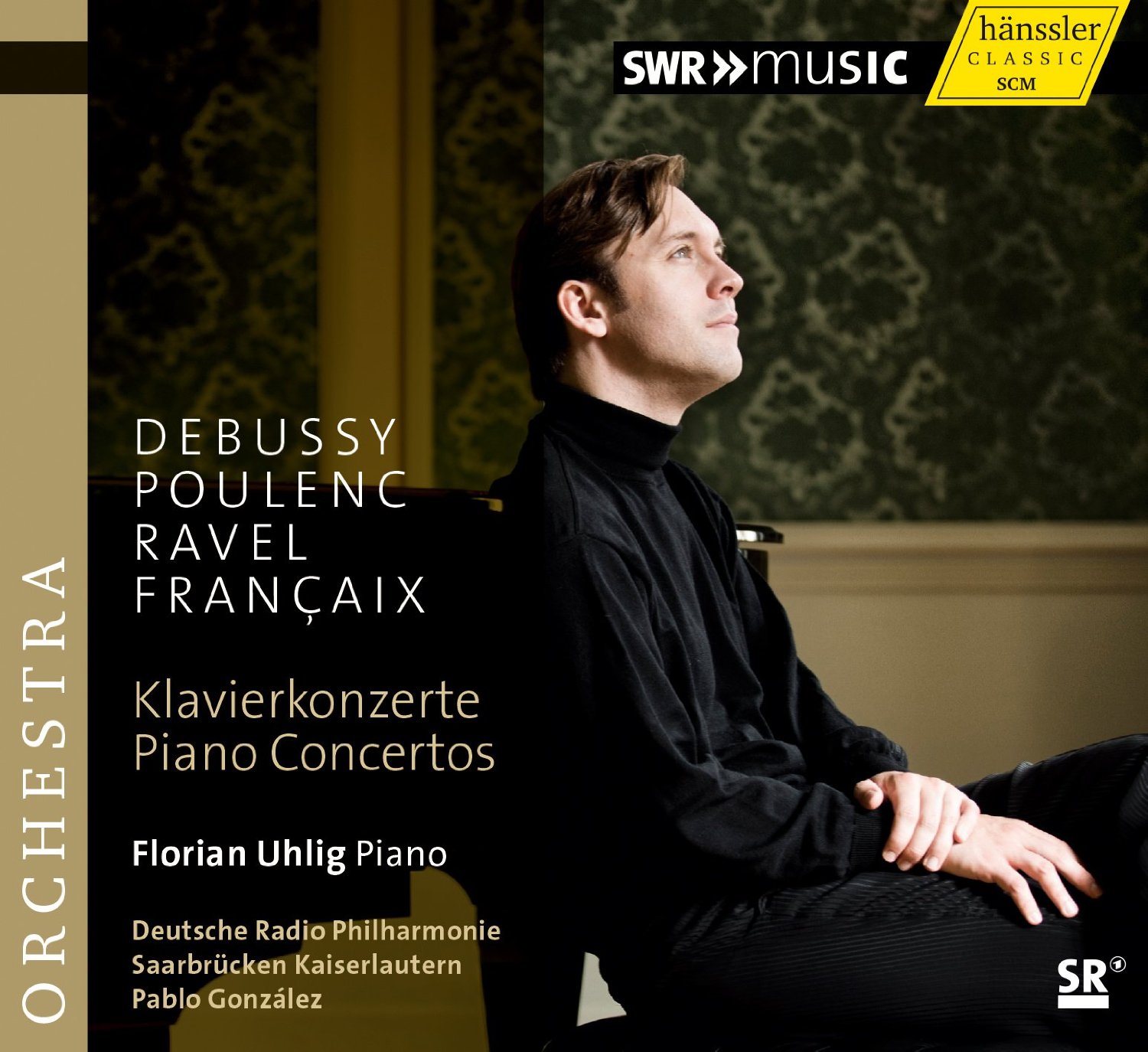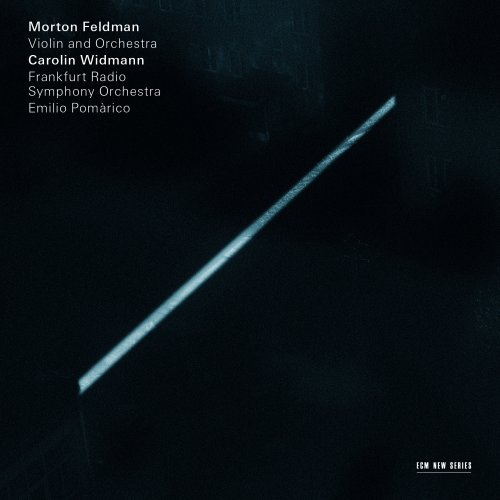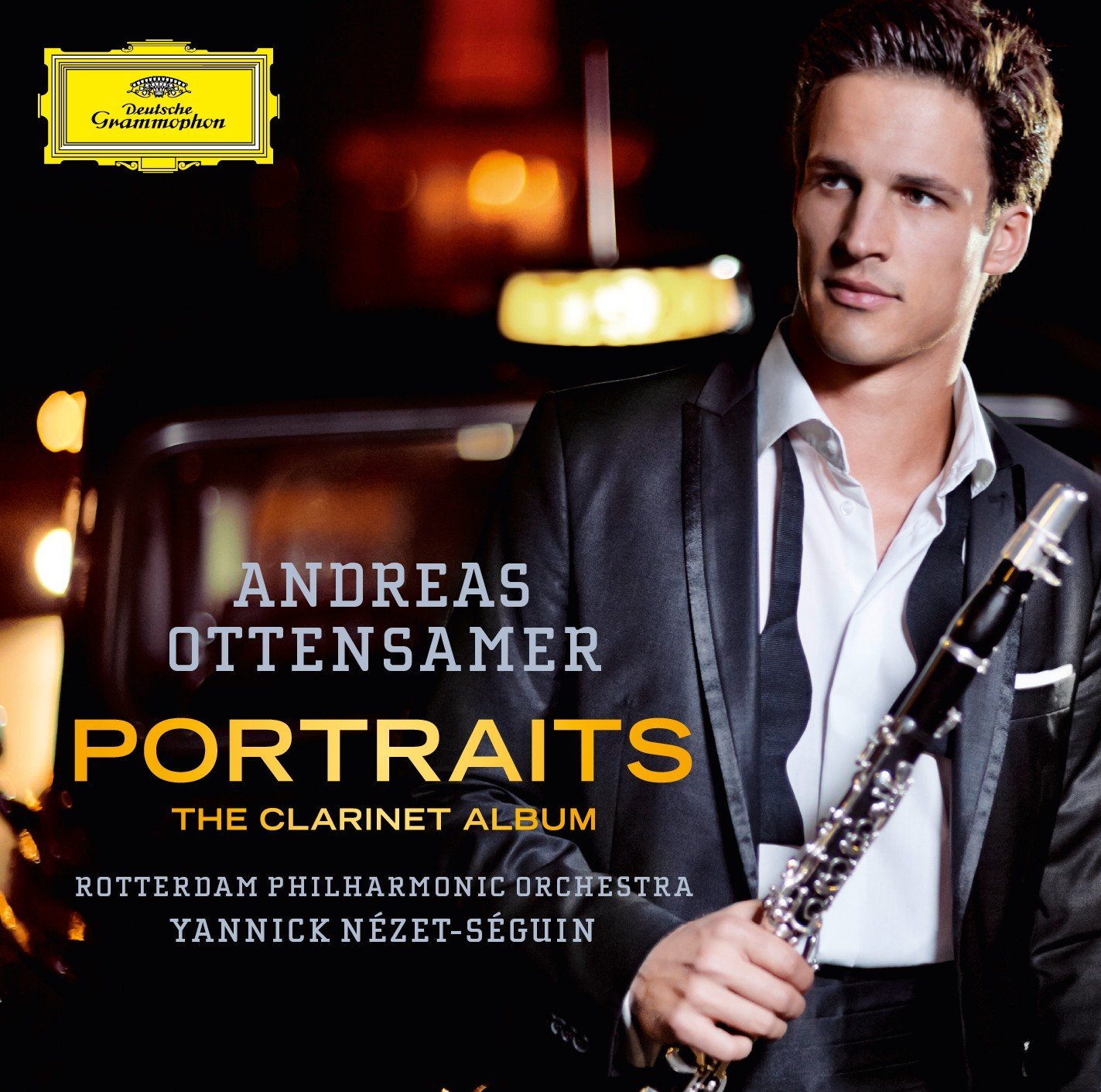Classical CDs Weekly: Feldman, French Piano Concertos, Andreas Ottensamer | reviews, news & interviews
Classical CDs Weekly: Feldman, French Piano Concertos, Andreas Ottensamer
Classical CDs Weekly: Feldman, French Piano Concertos, Andreas Ottensamer
Modernism from New York's quietest genius, sparkling piano concertos and a solo clarinet recital


I salivated when I read the tracklisting on this immaculately produced disc. I wasn’t disappointed; you’d need a heart of ice to resist Florian Uhlig’s playing. Debussy’s three-movement Fantaisie pour piano et orchestre, completed in 1890, is a concerto in all but name. The first performance was heavily cut; Debussy withdrew the piece in a huff and it was only heard in full after his death. This is delectable music, firmly rooted in the late 19th century but the melodic contours hint at Debussy’s mature style. The unbuttoned bravura and joie de vivre do surprise. The first movement’s hazy sunrise rapidly dissolves, and the work’s closing minutes are dazzlingly extrovert. Glorious. As is Jean Françaix’s tiny Concertino, so insubstantial that you’re worried you might accidentally tread on it. Four delectable movements pass in little more than eight minutes. Swoon over the slow movement’s muted string chords and the loopy finale, which closes proceedings in a puff of smoke.
Poulenc’s Piano Concerto is another life-enhancing treat, lurking in the shadow of its better-known sibling for two players. The Stravinskian brass chords are nicely projected by Pablo González’s orchestra, and he and Uhlig whip up a storm in the Andante con moto’s central section. Poulenc’s jolly finale references Swanee River and abruptly disappears with a wink and a shrug. You either fall for this music or you don’t; I’ve long suspected that people who don’t like Poulenc don't make good company. Which leaves Ravel’s Concerto in G, where Uhlig is up against stiffer modern competition. His reading is as stylish as any modern version, with a particularly seductive Adagio Assai – listen to his closing trill. Nippy orchestral playing and warm sound add to the fun.

Blimey. I’ve listened to this disc four times, and on each occasion I feel I’ve experienced a different piece. At various times I’ve been entranced, irritated, mystified and amazed. Morton Feldman’s Violin and Orchestra was completed in 1979. This is a late work, the longest and last piece for orchestra he composed – a single span of music lasting 50 minutes. It’s about as far from a conventional violin concerto as you can imagine. The soloist is absent for long stretches. The music’s pace is slow, and there’s a complete absence of showiness in the solo violin part. It’s hard to imagine a more sympathetic reading than Carolin Widmann’s softly-spoken account. She melts in and out of Feldman’s rarefied, lucid orchestral writing, occasionally entering so softly that you don’t notice she’s there.
The slowness is mesmeric; this work comes from a composer who wrote a string quartet lasting almost six hours. Everything is so fragmented, so glacial, broken down into music’s barest elements. You’re tempted to describe it as minimalist, but there’s rarely any sense of pulse. Feldman's writing is remarkable, and there are points when you're scratching your head while trying to work out how a particular effect has been realised. You begin to sense the organisation underpinning the work. There’s a brilliant repeated passage including an oddly-harmonised descending scale and a soft, rich brass chord. At times the work seems to grind to a halt. And it closes, softly, with a gorgeous, swirling passage which sounds as if the music’s draining away like water down a plughole. Wondrous.

If you’re not a violinist, cellist or pianist, your concerto-playing opportunities are somewhat limited. Which explains the hit-and-miss qualities of this solo disc from Andreas Ottensamer, the youthful principal clarinet of the Berlin Philharmonic. There’s at least one masterpiece here - Copland’s Clarinet Concerto, first performed by Benny Goodman in 1950. Its two movements are in bold contrast; a Satie-like slow waltz and a fast, upbeat finale. Ottensamer’s liquid slurs and restraint are exquisite in Copland’s first movement, and Yannick Nézet-Séguin’s string-rich accompaniment blends ecstatic lyricism and potent melancholy. Copland’s second movement is a brilliant foil – populist, exciting, but never naff, and it's good to hear the orchestral piano part cutting through so emphatically.
The rest of the disc never quite matches these heights. Louis Spohr’s Concerto no 1 has its charms, but is curiously unmemorable, and a concerto by Cimarosa, freely arranged from solo keyboard music, is pleasing classical fluff but little more. Ottensamer’s wide-bore Viennese clarinet sounds gorgeous, and it’s his playing which holds the attention more than the music. So it’s good to report that the lollipops on this disc are great fun, all arranged by by Ottensamer’s cellist colleague Stephan Koncz. Piano preludes by Gershwin and Debussy delight, and a rarely-heard Berceuse by Amy Beach entrances.
Explore topics
Share this article
The future of Arts Journalism
You can stop theartsdesk.com closing!
We urgently need financing to survive. Our fundraising drive has thus far raised £49,000 but we need to reach £100,000 or we will be forced to close. Please contribute here: https://gofund.me/c3f6033d
And if you can forward this information to anyone who might assist, we’d be grateful.

Subscribe to theartsdesk.com
Thank you for continuing to read our work on theartsdesk.com. For unlimited access to every article in its entirety, including our archive of more than 15,000 pieces, we're asking for £5 per month or £40 per year. We feel it's a very good deal, and hope you do too.
To take a subscription now simply click here.
And if you're looking for that extra gift for a friend or family member, why not treat them to a theartsdesk.com gift subscription?
more Classical music
 Echo Vocal Ensemble, Latto, Union Chapel review - eclectic choral programme garlanded with dance
Beautiful singing at the heart of an imaginative and stylistically varied concert
Echo Vocal Ensemble, Latto, Union Chapel review - eclectic choral programme garlanded with dance
Beautiful singing at the heart of an imaginative and stylistically varied concert
 Scott, Irish Baroque Orchestra, Whelan, RIAM, Dublin review - towards a Mozart masterpiece
Characteristic joy and enlightenment from this team, but a valveless horn brings problems
Scott, Irish Baroque Orchestra, Whelan, RIAM, Dublin review - towards a Mozart masterpiece
Characteristic joy and enlightenment from this team, but a valveless horn brings problems
 Classical CDs: Voice flutes, flugelhorns and froth
Baroque sonatas, English orchestral music and an emotionally-charged vocal recital
Classical CDs: Voice flutes, flugelhorns and froth
Baroque sonatas, English orchestral music and an emotionally-charged vocal recital
 Kanneh-Mason, Britten Sinfonia, Shave, Milton Court - a grin and a big beaming smile
A pair of striking contemporary pieces alongside two old favourites
Kanneh-Mason, Britten Sinfonia, Shave, Milton Court - a grin and a big beaming smile
A pair of striking contemporary pieces alongside two old favourites
 theartsdesk at the New Ross Piano Festival - Finghin Collins’ musical rainbow
From revelatory Bach played with astounding maturity by a 22 year old to four-hand jazz
theartsdesk at the New Ross Piano Festival - Finghin Collins’ musical rainbow
From revelatory Bach played with astounding maturity by a 22 year old to four-hand jazz
 First Person: Manchester Camerata's Head of Artistic Planning Clara Marshall Cawley on questioning the status quo
Five days of free events with all sorts of audiences around Manchester starts tomorrow
First Person: Manchester Camerata's Head of Artistic Planning Clara Marshall Cawley on questioning the status quo
Five days of free events with all sorts of audiences around Manchester starts tomorrow
 Goldscheider, Brother Tree Sound, Kings Place review - music of hope from a young composer
Unusual combination of horn, strings and electronics makes for some intriguing listening
Goldscheider, Brother Tree Sound, Kings Place review - music of hope from a young composer
Unusual combination of horn, strings and electronics makes for some intriguing listening
 theartsdesk Q&A: composer Donghoon Shin on his new concerto for pianist Seong-Jin Cho
Classical music makes its debut at London's K-Music Festival
theartsdesk Q&A: composer Donghoon Shin on his new concerto for pianist Seong-Jin Cho
Classical music makes its debut at London's K-Music Festival
 Helleur-Simcock, Hallé, Wong, Bridgewater Hall, Manchester review - moving lyricism in Elgar’s concerto
Season opener brings lyrical beauty, crisp confidence and a proper Romantic wallow
Helleur-Simcock, Hallé, Wong, Bridgewater Hall, Manchester review - moving lyricism in Elgar’s concerto
Season opener brings lyrical beauty, crisp confidence and a proper Romantic wallow
 Kohout, Spence, Braun, Manchester Camerata, Huth, RNCM, Manchester review - joy, insight, imagination and unanimity
Celebration of the past with stars of the future at the Royal Northern College
Kohout, Spence, Braun, Manchester Camerata, Huth, RNCM, Manchester review - joy, insight, imagination and unanimity
Celebration of the past with stars of the future at the Royal Northern College

Add comment